Ricoeur and the
Post-Structuralists
Ricoeur and the
Post-Structuralists
Bourdieu, Derrida, Deleuze,
Foucault, Castoriadis
Johann Michel
Translated by Scott Davidson

London New York
Published by Rowman & Littlefield International, Ltd.
Unit A, Whitacre Mews, 2634 Stannary Street, London SE11 4AB, United Kingdom
www.rowmaninternational.com
Rowman & Littlefield International, Ltd. is an affiliate of Rowman & Littlefield
4501 Forbes Boulevard, Suite 200, Lanham, Maryland 20706, USA
With additional offices in Boulder, New York, Toronto (Canada), and London (UK)
www.rowman.com
Originally published in French as Ricoeur et ses contemporains Copyright Presses Universitaires de France
This English translation Copyright 2015 by Rowman & Littlefield International
All rights reserved. No part of this book may be reproduced in any form or by any electronic or mechanical means, including information storage and retrieval systems, without written permission from the publisher, except by a reviewer who may quote passages in a review.
British Library Cataloguing in Publication Information Available
A catalogue record for this book is available from the British Library
ISBN: HB 978-1-78348-094-4
ISBN: PB 978-1-78348-095-1
ISBN: EB 978-1-78348-096-8
Library of Congress Cataloging-in-Publication Data
Michel, Johann, 1972
[Ricoeur et ses contemporains. English]
Ricoeur and the post-structuralists : Bourdieu, Derrida, Deleuze, Foucault, Castoriadis / Johann Michel ; translated by Scott Davidson.
pages cm
Translation of: Ricoeur et ses contemporains.
Includes bibliographical references and index.
ISBN 978-1-78348-094-4 (cloth : alk. paper)ISBN 978-1-78348-095-1 (pbk. : alk. paper)ISBN 978-1-78348-096-8 (electronic)
1. Ricoeur, Paul. 2. Bourdieu, Pierre, 19302002. 3. Derrida, Jacques. 4. Deleuze, Gilles, 19251995. 5. Foucault, Michel, 19261984. 6. Castoriadis, Cornelius, 19221997. 7. Human behaviorPhilosophy. 8. SociologyPhilosophy. I. Title.
B2430.R554M53313 2014
194dc23
2014028365
 TM The paper used in this publication meets the minimum requirements of American National Standard for Information Sciences Permanence of Paper for Printed Library Materials, ANSI/NISO Z39.48-1992.
TM The paper used in this publication meets the minimum requirements of American National Standard for Information Sciences Permanence of Paper for Printed Library Materials, ANSI/NISO Z39.48-1992.
Printed in the United States of America
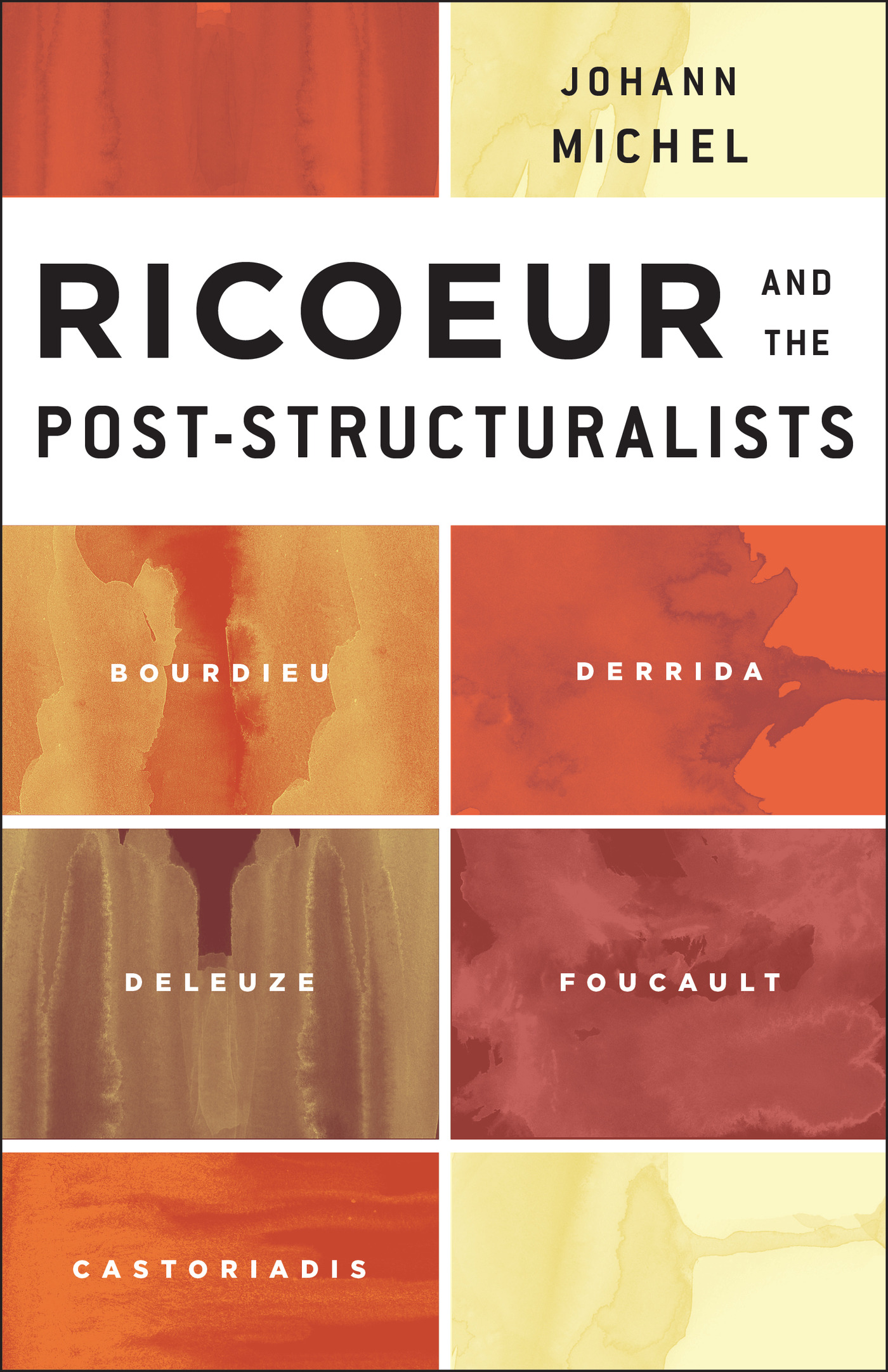
Acknowledgments
Chapter 1, Habitus, Narrative, and the Promise, is a completely reworked version of the article Lanthropologie fondamentale de Paul Ricoeur dans le miroir des sciences sociales, which appeared in Social Sciences Information 47, no. 1 (2008): 2154 (with kind permission from the editor to publish this revised text). Chapter 2, The Sense of Excess: A Hegelianism with Reserves is a revised version of the article Hermneutique et dconstruction: Le diffrend thico-politique entre Paul Ricoeur et Jacques Derrida, published in tudes phnomnologiques 4142 (2005): 32542 (with kind permission of the editor to publish this revised text). Chapter 4, The Care of the Self and Care for Others is a revised version of a contributionLanimal hermneutiqueto the multi-author work edited by G. Fiasse, Paul Ricoeur:De lhomme faillible lhomme capable (Paris: PUF, 2008), 6392.
Translators Note
I have sought throughout to provide a translation that is faithful to the original French text and at the same time enjoyable for the English reader. I want to thank Johann Michel for his steady support throughout this process and Sarah Campbell for taking on this project.
Most quotations in this book follow the English translation of works cited in this book. In some cases, though, it was necessary to modify the translation in order to connect it properly to the argument of the book, without compromising the meaning of the original text. In those cases, I have indicated in the notes that the translation has been modified. When a work has not yet been translated into English, the translation is my own and the original French text is cited. Italics in the quotations belong to the work cited, and italics in the body of the text belong to the French original.
Full citations of works are included in the first reference to a work and then all subsequent citations appear in abbreviated form.
Preface
Publication of the translation of Johann Michels Ricoeur and the Post-Structuralists is a most welcome event. Michel is one of the most talented Ricoeur scholars writing today, and the present translation significantly extends the growing international discussion of Ricoeur and augments Michels own mounting international reputation. The book will be rewarding for those with knowledge already of Ricoeur, as it contextualizes and broadens the reach of Ricoeurs themes by demonstrating points of comparison and contrast with the contemporary thought of Bourdieu, Castoriadis, Deleuze, Derrida, and Foucault. Michels treatment will also be enlightening for those more newly coming to Ricoeur in this volume through their prior study of the other figures Michel addresses. For a succinct text, the book is remarkable for the great range of Ricoeurs prolific corpus that it encompasses.
In deliberately setting out to write a fairly short book, Michel sets aside an encyclopedic treatment of Ricoeur and his contemporaries in order to focus uponand achievegreat incisiveness. Ricoeur is well known for the long detours of his thought where he expends much effort and many pages gathering the evidence for his argument. Michel helps the reader concentrate on Ricoeurs main arguments. Similarly, Michel distils fundamental points of comparison between Ricoeur and his contemporaries. While Michels own perspective is sympathetic with Ricoeurs, throughout the presentations and evaluations are respectful, and Michel does not shy away either from critique of limitations in Ricoeur. In these ways, Michels approach is an exemplary model of a critical hermeneutic.
Michels analysis is framed by consideration of Ricoeurs location in relation to French post-structuralist thought. (The exception is Castoriadis, who is not a post-structuralist but examined for the role granted to social-historical creation.) Although the current academic literature would now more typically invoke the vocabulary of postmodernism rather than post-structuralism to characterize the trends in which this thought is located, Michels retention of the term post-structural is very apt, as he wants to delineate his thinkers response precisely to structuralism. While structuralism bracketed or eliminated the human subject as a source of meaning, post-structuralism reorients the issue and declares the subject not the master of meaning. On the one hand, Ricoeur shares with thinkers such as Bourdieu the structuring of the individual created by social institutions and personal dispositions (character, habitus). On the other hand, he also shares with Derrida and Deleuze the sensibility that the cogito is fractured and decentered, and that rupture with existing individual and social structuration is possible. He agrees with Foucault that the history of knowledge should be understood in light of discontinuity, and he and Castoriadis share that we never reach bare reality, as our understanding is always mediated by the social imaginary. Michel finds that Ricoeurs individual path exhibits a unique variety of post-structuralism.
Next page
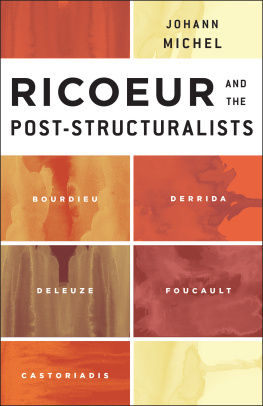


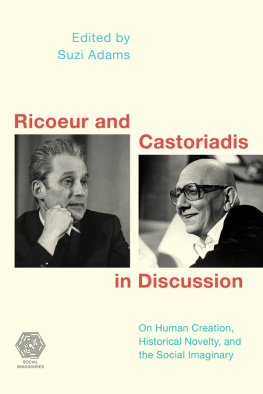
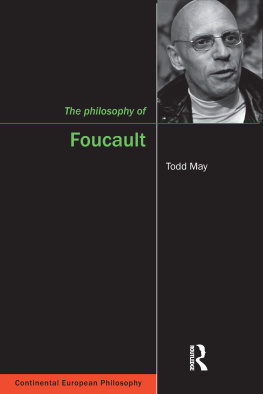
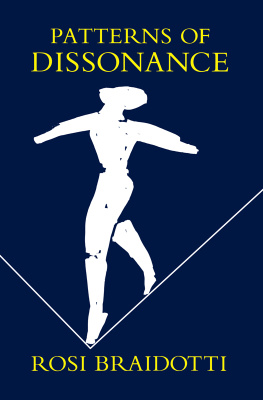

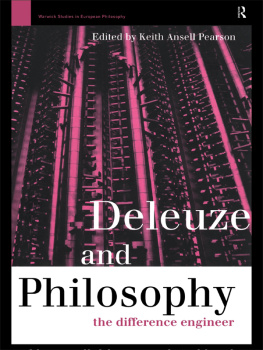
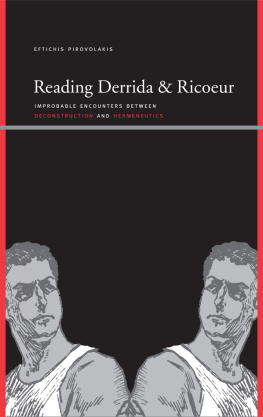

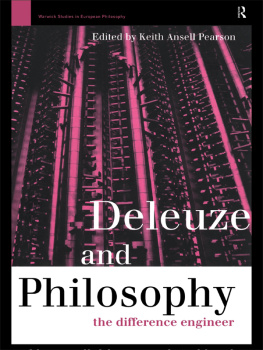
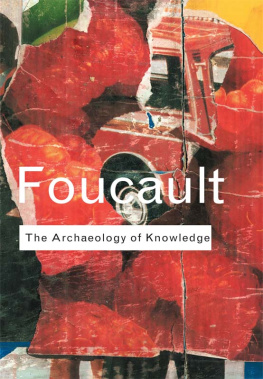
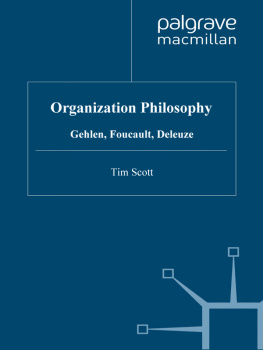

 TM The paper used in this publication meets the minimum requirements of American National Standard for Information Sciences Permanence of Paper for Printed Library Materials, ANSI/NISO Z39.48-1992.
TM The paper used in this publication meets the minimum requirements of American National Standard for Information Sciences Permanence of Paper for Printed Library Materials, ANSI/NISO Z39.48-1992.